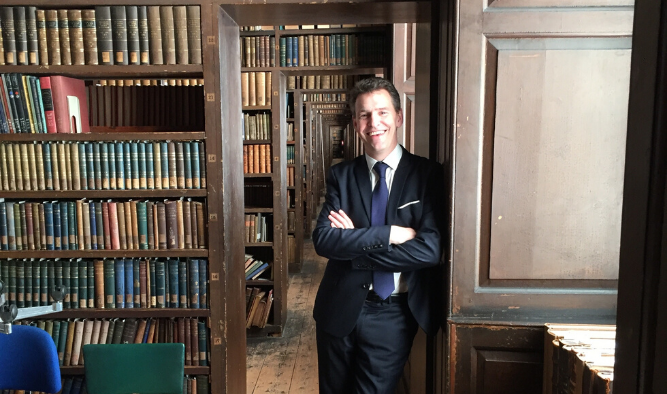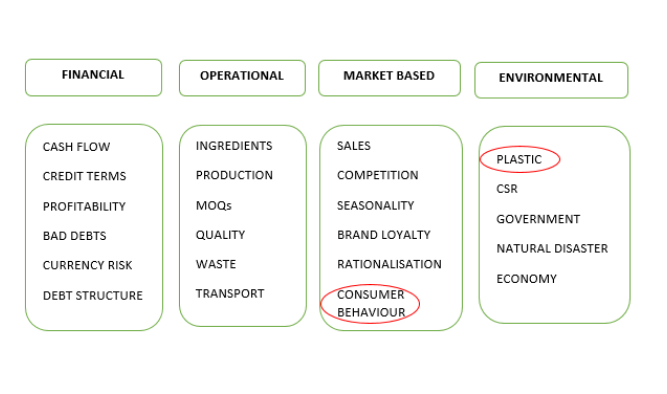Class of 2018 Full-Time MBA graduate Troy Lavin recently returned to the (virtual) classroom to mentor MBA students taking the Operations Strategy module. He has since spoken with us about his role as Chief Operating Officer for VITHIT Limited, giving an insight into the impact of logistical challenges like COVID-19 and how the Trinity MBA has shaped his approach to such problems.

“Prior to starting my MBA, I spent over 20 years in the oil industry - focusing on the derivatives markets. I took a year out to study the MBA at Trinity, which changed my focus on where my career should lead to next.
I am currently the Chief Operating Officer for VITHIT Limited. VITHIT is a functional vitamin beverage that comes in six different flavours and is sold into 15 countries around the world.
As the COO of a drinks company, I have to be aware of a number of risks. There are various challenges associated with production, supply chain, distribution, retail sales, finance, human resources and the environment. The Trinity MBA has taught me to be analytical and systematic in my approach to these risks. The tools that we learn throughout the academic year are beneficial when assessing various factors, especially when used together. An example of this would be to combine a simple PESTEL analysis with a typical risk framework that you would pick up in Corporate Strategy.
PESTEL analysis forces you to think in terms of different arenas. The political landscape would not normally be a risk for a vitamin drinks business, but Brexit and COVID-19 have both created logistical challenges that were simply not relevant before. Similarly, when you consider the environmental impact of our operations, the attitudes of consumers towards single-use plastic have completely changed over the past five years.
Over time, we at VITHIT have fleshed out some of these factors and allocated them into four large 'buckets' of risk as laid out below. This allows us to make informed decisions about what is best for the company as a whole. For example, an obvious answer to the plastic bottle problem would be to produce our drinks in glass. However, our research shows that glass is not convenient for the 'grab and go' consumer.

The current pandemic has posed a challenge for us as well as nearly every other industry around the globe. My takeaways from the current situation are threefold.
- Continuous communication with the team is difficult but vital through this tough time;
- A cash buffer is crucial to get you through tough times;
- Business leaders may have to reconsider the lean model. Depending so heavily on just-in-time inventories with inter-country supply chains will be damaging to many companies over this period and in the foreseeable future.
COVID-19 has shaken us to our core but the world has been shaken to its core before and has bounced back. The world was wealthier, healthier and more peaceful than at any time in the past before the crisis, and it will be again. This too shall pass.”
Troy Lavin, Full-Time MBA Graduate 2018
Find out more about our MBA programme here.


